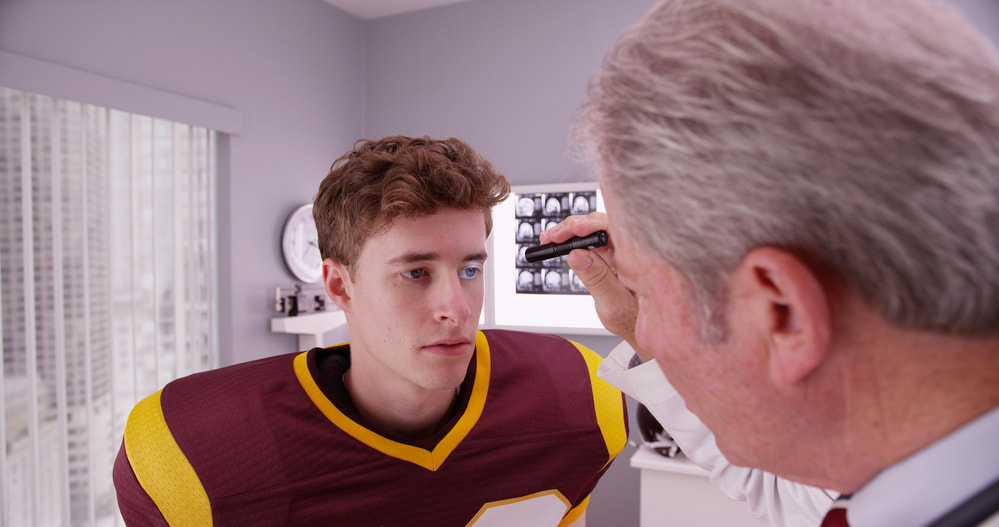How can a traumatic brain injury impact vision?Brain injuries can impact vision in several ways. Symptoms may occur immediately after the injury or develop later from the damage. Some vision changes may be temporary and resolve. In other instances, vision problems may be permanent. A traumatic injury to the brain can damage the nerve fibers that send signals from the brain to the retina. Brain injuries can also increase pressure on the optic nerve. If the pressure is severe enough, it can interfere with the blood supply to the retina and cause vision loss. Symptoms of vision problems related to a TBIUsually, vision problems depend on what part of the brain was injured. Immediate vision changes may include:
Longer lasting symptoms are also possible due to a brain injury and may include the following:
Treatment for vision issues related to a TBITreatment for a traumatic brain injury may involve a team of healthcare providers. All brain injuries are unique, and the recovery process is also varied. Treatment for vision issues related to a traumatic brain injury is vital for overall well-being. Visual issues can lead to problems with balance and dizziness. Treating vision problems can also aid with other areas of recovery, such as physical and vocational therapy. The following treatments and tools may help:
TBI preventionMarch is Brain Injury Awareness Month, and it is a good reminder that we should all do what we can to decrease our risk of a traumatic brain injury. Below are several suggestions to prevent head injuries.
If you have any questions about brain injuries, such as how they affect the eyes, we are happy to answer your questions. Also, if would like to schedule an exam with one of our eye doctors, please call our office at 508-746-8600. Comments are closed.
|
EYE HEALTH BLOGCategories
All
Archives
July 2024
|
|
Kadrmas Eye Care New England
55 Commerce Way, Plymouth, MA 02360
14 Tobey Road, Wareham, MA 02571 133 Falmouth Road (Rt 28), Mashpee, MA 02649 |
Phone Number:
1-508-746-8600 Hours: Monday through Friday — 8 AM – 4:30 PM |


 RSS Feed
RSS Feed
